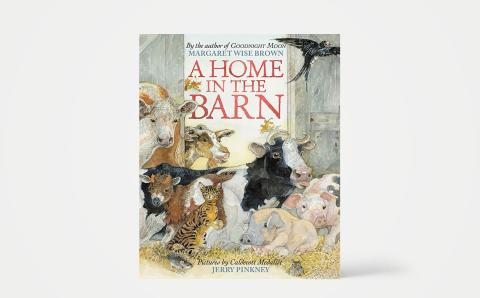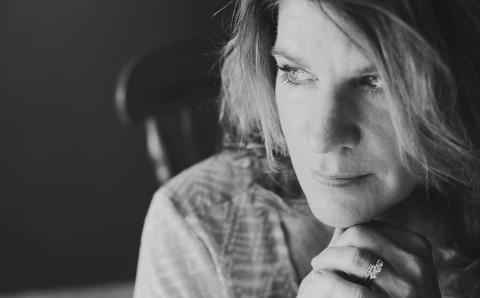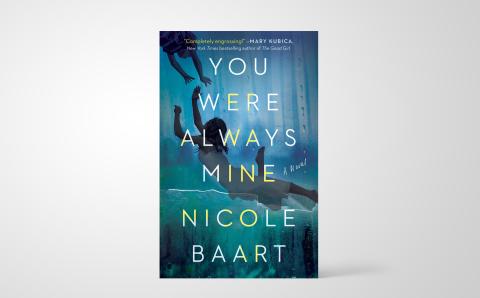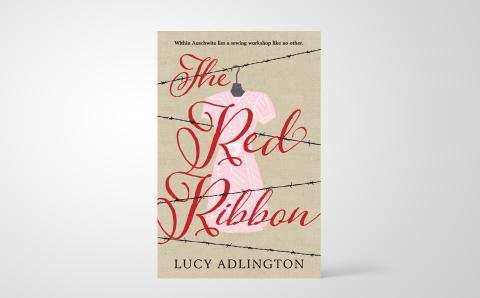We’re pleased to present the winners of our first-ever essay contest for college students. Our thanks to all 46 young writers who wrote deeply and honestly about their Christian faith, and to judges Deb (Van Brenk) Flaherty, who worked in daily journalism for more than two decades and now is a communications specialist, and Bruce Buursma, who reported around the globe for The Chicago Tribune and now consults with clients to provide writing, editing, and video production services. Along with The Banner’s editor-in-chief, Shiao Chong, they awarded first prize ($1,000) to Rylan Brue, second prize ($500) to Juliana Knot, and third prize ($250) to Paola Gracia. Our thanks to the donor who made this contest possible.
Work in Progress: Why Christianity Is Still Important
By Rylan Brue
“No matter how wide you stretch your fingers, / your hands will always be too small to catch all the pain you want to heal” (No Matter the Wreckage, Write Bloody Publishing, 2014). Written by spoken-word poet Sarah Kay, these words have been running through my head lately. You see, I’ve just graduated, and despite all the energetic exhortations to change the world and seek shalom, I can’t help but feel overwhelmed by what an immense assignment that really is. When the echoes of the commencement addresses fade and the balloons with “Congratulations!” etched across them have started to sag, I begin to recognize how poorly I’ve done at making a positive impression at my high school, much less the world. How will a signed piece of paper make me any better at it? This world seems so broken; where do I even start?
I don’t pretend that this emotion is unique to me, however. There’s a possibility that you’ve had it, and I know others who’ve had it. Elijah had it. You can read about it in 1 Kings 19. Elijah had a tough assignment. Tasked with reforming an entire wayward nation seemingly by himself, it’s easy to understand why Elijah might despair. Fresh off the dramatic showdown on Mount Carmel, you can imagine Elijah’s excitement and optimism (perhaps not all that different from the immediate feelings incited by a hard-earned diploma). Surely things would be different now. This was the incisive act that would wake up a nation to who was really in charge. But, surprisingly, not much seems to have changed. Jezebel and Ahab still sit on their thrones, determined to see Elijah dead before 24 hours are up. Elijah, disappointed and afraid, flees. Called to Mount Horeb after God doesn’t give him the death he asks for, Elijah pours out his feelings to God. “I’ve been working so hard for you, but it’s all still so messed up,” he cries, in effect. “I’m the only one left and I can’t do it by myself.” Sounds an awful lot like the post-graduation blues, if you ask me.
However, the story doesn’t end there. God doesn’t leave Elijah in his despair, and God won’t leave us in our despair either if we pay attention. For on the side of God’s mountain comes the surprise. God, whom Elijah had just seen reveal himself in the flare of flames, reveals himself in something so hard to notice that Elijah might have missed it if he hadn't just been instructed to look: a gentle whisper. As it turns out, God had been at work in his quiet, consistent way reserving 7,000 who hadn’t bent their knee to Baal. Elijah, despairing under the burden of a task he couldn’t do by himself, is suddenly reminded that God was at work.
Did you catch that? God at work. Christianity is still important because God is still at work. The biblical narrative is bookended by stories of God in action. As the curtain comes up on opening night, we witness God creating. As the last pages of Revelation are read, we hear Christ’s declaration, “I am making all things new!” Creating and making both draw attention to who God is and what he is doing. But if that’s not enough to convince you, look between the bookends and witness the most world-changing act of all. In the humility of human flesh, God comes to us. Dying the death we deserved, Christ leaves the tomb empty, opening up possibilities of newness previously unimaginable. This is the action that makes the Revelation declaration possible.
Where does this take us? Where did it take Elijah? Where does it take me as my diploma gathers dust? Well, for Elijah, it took him back to the place he ran from. God was not ready to throw in the towel. God had plans for his people yet, and Elijah still had a role to play. Eugene Peterson likes to say that “there are no spectator seats in the drama of salvation” (As Kingfishers Catch Fire, Waterbrook, 2017). Although God does the heavy lifting, we are all invited to participate. If Christianity is important because it declares that God is at work, then it only gains importance when we realize it is also the way we participate. Where does the resurrection—God’s most decisive act—take me? Back to Monday morning. Back to everyday life where the news headlines don’t allow me to ignore how much work there is to be done. Like the Emmaus disciples, we return to the places we escaped from originally, the world in such desperate need of healing. But things are not the same as before. How could they be? Instead, filled with hope, we return, exploring the new possibilities of resurrection life, testifying about the God who has acted and is acting, and participating by allowing the good news of resurrection to seep into every corner of our beings in pursuit of lives that reflect the coming kingdom.
So in our Mount Horeb moments—when the brokenness of the world is so apparent, when we seem so small, when we can’t imagine how things can get better—know that the Creational Reclamation Project is not one we tackle by ourselves. In fact, we can’t. The perfect remedy is realizing that God is at work and has worked—sometimes as loudly as a stone rolling away and other times as quiet as a gentle whisper.
Sarah Kay is right. We can’t stretch our hands wide enough to catch all the pain we want to heal, but to declare Christianity as still important is to declare that once a wooden crossbeam stretched God’s arms wide enough to embrace and bring healing to an entire world.
Rylan Brue is an aspiring storyteller and wannabe poet. He enjoys words—both reading and writing them. He worships at Covenant CRC in Sioux Center, Iowa, and is studying theology and philosophy at Dordt College. “If I’m not attempting some form of music making or playing hockey, you can probably find me reading a book—preferably a fantasy story by Brandon Sanderson.”
Why Christianity Still Matters
By Juliana Knot
In 1997, a 27-year-old grad student was walking home from Walgreens. It was Valentine’s Day, and she was getting some photos developed. Before she could get home, a man took her at gunpoint. He raped and murdered her. Police found her body a couple of days later.
In literature, there’s this term called “denouement.” It describes the event where the plot of the story and all of its subplots that have been building and intertwining resolve and have meaning. Denouement, which literally translates to “the untying of the knot,” marks the divide between a tangled mass of string and an intricate tapestry.
In the beginning, God created the heavens and the earth, but right after, he walked hand in hand with humans. He had just brought existence out of nothing and hung galaxies across the cosmos but still took the time to sculpt his image out of the dust of the earth. God reigned sovereign above his creation yet immanent among it.
For a world that relies so heavily on story and narrative to communicate, to advertise, and to understand, we lack plot. Events happen, and days go by with no discernible end. The tides swell and take governments down with them. A century later, it happens again. Nothing new happens under the sun. After all of our eating and drinking, the merriment loses its shine, and we begin to see that it’s all gilded. When we wake up the next morning, covered in our own vomit, the sound of the party echoes in our head. The volume keeps rising, but all the sound isn’t a symphony; it’s just noise.
For that world, an awful death, a literary definition, and a creation myth have no connection and little significance. If anything, they’re additional examples of our tragic meaninglessness. Bad things happen to innocent people, and although we can distract ourselves with good books to read and stories to entertain us, they’ll never set things right. They can offer us great beauty and maybe some comfort, but at best, they only distract us from an ugly and broken world where girls die while walking home from Walgreens.
Christianity still matters, because it and only it provides the framework for meaning in both the lives of individuals and the arc of the world. It holds the narrative that binds up every single subplot and theme with our collective fate. The Bible itself is a story filled with many stories of the God of the universe interceding for widows, orphans, rapists, and murderers.
At the cross of Jesus Christ, every thread is tangled together. That girl’s senseless death intertwined with the horrors of war and the weeping of mothers and rested on the shoulders of God. The man responsible for none of these threads hung bound by them, as the world below scorned him. Keeping with the tradition of Genesis, God atoned for the cosmic debt of sin above while among the sinners themselves. The curtain ripped, the threads broke loose, and the creation murdered its Creator.
Three days later, the threads came together, but this time they weren’t a distorted mass. Christ rose. Denouement abounded in glorious wonder. Every string, both past and present, found a place in the master tapestry. The creation that ran from God found life in him. The woman murdered 2,000 years later could now laugh at death. The physical, literal resurrection of Jesus Christ weaved together the stories of suffering into a bright display of hope.
Christ’s death and resurrection, his lack of sin, and his perfect obedience continue to give meaning for us who live after the denouement. God continually assures his creation of his cosmic victory while comforting his people individually through his Holy Spirit. As a result, Christianity has the monopoly on meaningful story.
The tides swell and overtake kingdoms, but only at the command of God for his express purpose. Cultivating beauty and comfort in this world is worthwhile because it points to the fulfillment of beauty and comfort. Every life, every thread, and every story deserves respect, for they are necessary components of the grand narrative where God defeats sin and death and ushers in love and life. He will weave each thread with the care that he took to sculpt man to create a cloth with the glory with which he decorated the cosmos.
Especially when confronted with the worst of the world, Christians have firm comfort that it will not always be so. We still live in darkness and see dimly. The story of the 27-year-old grad student is the story of my aunt, and my family can’t find any reason for it in this world. However, we have hope in the promise of Christianity alone. The death and resurrection of Jesus Christ holds her fast to him. Although her short thread is all that is apparent now, a greater tapestry will one day appear. And it will proclaim with her story and others’ the story of the world. God created and redeemed, above and among, for the individual and for the cosmos. This is a story only Christianity can tell.
Juliana Knot is studying philosophy and German at Calvin College and is the managing editor of Chimes, the college’s weekly newspaper. She is lucky enough to hail from the south suburbs of Chicago, home of not only the best pizza but also the best people. Her big family and extended church family are some of the greatest blessings in her life.
Why Christianity Still Matters
By Paola Gracia
In May of 2017, I traveled to Nicaragua on a medical brigade along with a group of about 20 other pre-health students from my university. We went in hopes of providing medical care to rural communities that rarely, if ever, have access to such services. Leaving behind the comforts of our own homes, my colleagues and I boarded that plane on a Sunday morning, inexperienced as we were, with only one mission—to care for others. It was only our second day there when we walked into a church full of almost 500 people waiting for us(!) to serve them, prompting in me a feeling I will not soon forget. Albeit nervous and with slightly shaky hands, each one of us was determined to treat these people to the best of our abilities. And in doing so, as we took the vital signs of one patient after another, I came across an elderly lady who impacted me in the most powerful way. I explained to her I would be pinching her finger for a blood test, and she smiled at me with the eyes of a grandmother seemingly not bothered by the sting of pain she would soon feel. Instead, she reached out her hand, put it on my shoulder, and quietly said in our beautiful language, “God bless you and your friends for what you are doing here. We appreciate you.” In that moment, I saw Jesus. This wonderful woman, whose wrinkles told a million stories and who most likely didn’t have many luxuries, showed me what Christianity is all about and why it matters now more than ever before.
Merely a year after this unforgettable experience, Nicaragua is essentially at war. Nicaragua, a land filled with endless potential and the most sincere people, has experienced this before. But now, it seems, the threat is real. The people are fed up with the power-hungry politicians and their empty promises. Approximately 300 mostly young people have died due to brutality from government-paid officials for nonviolent protesting or simply for walking the streets, living life. When we consider this, among other stories, portrayed by the media in a global context, it is clear: as humans, we are our biggest problem today. For as long as humanity has had dominion over this world, we have lived in a constant state of yearning for identity, purpose, and hope. Ruled by the tyranny of the urgent, we have immersed ourselves in finding temporary solutions to long-term problems. With the best intentions, a few have tried time and time again to change the paradigm, to better the world. And yet no trend or worldview has seemed to fully satisfy this deep chasm of despair and helplessness we have created for ourselves. Being witness to all of this practically screams at us that Christianity does not matter in our reality—that there is nothing left for us to do but give ourselves up to the desires of our hearts, whatever these may be, as this is the only alternative.
However, this thinking is flawed in more ways than one. When we think about how we define our humanness, it would be reasonable to conclude that to be human is to be to be whole and complex. It is to have direction, meaning, belonging, and fullness. Seemingly, we understand just how significant we are in this creation. However, does this indicate we know why we are so significant? More often than not, the answer is no. Whether we choose to acknowledge it or not, there is a Truth with which we must, at some point, all come to terms. And that Truth, in simplest form, is that our Creator designed us in his image. That is to say, to know God is to recognize our humanness and, ultimately, to know ourselves. As such, only Jesus can fulfill us. But believing in Jesus’ Truth implies we are also willing to accept his radical calling to challenge the system under which our world currently operates—a calling to restore society.
Perhaps the greatest model of this radical lifestyle can be found in Jesus himself. After all, the story of creation is one of redemption. Jesus, in his boundless grace, underwent the ultimate sacrifice because he loved his creation, one made good but corrupted by sin. The sin that entered the world then continues to illustrate a compelling paradox today. The evil we see in places like Nicaragua and all around the world is a direct consequence of sin, but simultaneously this evil also represents a society desperately calling out to be rescued. The good news? When Jesus died on that cross, he redeemed his entire creation, not just one part of it. In this sense, Christianity is the church, which God has called to be in the world but not of it.
Sometimes it seems for fear of letting evil in, we have forgotten to share his goodness. But faith is not circumstantial. I believe in humanity because God loves his creation so much he was willing to die for it. Precisely that is the type of radical Christianity that matters today more than ever before. And despite the evil, God is still working in this world, revealing himself to us through relentless grace and mercy. Yes, the world may oftentimes seem a dark place, but the gospel we incarnate disrupts that darkness with the brightest beam of hope and abundant life. In this way, we change the paradigm and the Christianity we live and breathe becomes the alternative. Ultimately, only when we fully comprehend this Truth will we be able to restore society. And just as I thought with the sweet words of the grandmother in Nicaragua, when others see us they also will say: Christianity still matters.
Paola Gracia grew up in Miami, Fla., and Sioux Center, Iowa, transferring from Dordt College to Florida International University in her senior year. She is a member of Covenant CRC in Sioux Center and attends a church plant, Vida y Esperanza, in Miami with her family.









